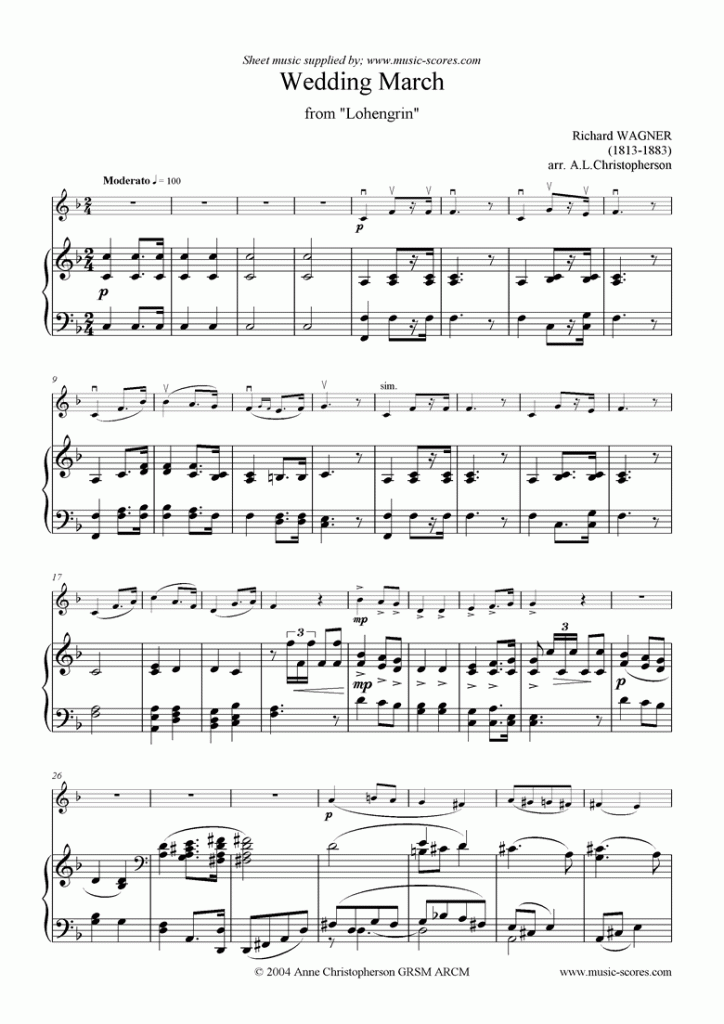Top 10 Wedding Ceremony Music tips.
I’ve been playing the violin since the age of three and played my first wedding at the tender age of twelve. I’ve played for countless weddings, as a soloist and as a member of a quartet, and my experiences as a professional wedding musician certainly helped me in my professional career as a soloist, arranger, and composer in Los Angeles. It took me years of experience to learn how to maximize my potential as a wedding violinist, and I’d like to share these 10 tips with brides that want to make sure their wedding ceremony music is the best that it can be. – Ann Marie Calhoun for TarynCoxTHEWIFE
1. Choose a group that fits the environment:
When you begin to look at your wedding ceremony music, you need to consider how the environment will inform the group that you choose. Make sure the acoustical environment is appropriate for the group you choose. For example, a string quartet is perfect in an intimate chapel while a brass band will overpower guests. Also, be aware that outdoor weddings create unpredictable environments for fragile instruments. No violinist will be willing to play in direct sunlight or extreme temperatures.
2. Understand the musical moments:
Most wedding music will fall into the categories of prelude, processional, recessional, and postlude. The prelude sets the tone for the ceremony and starts right before guests arrive. The processional is for the seating of the mothers, bridesmaids, flower girls, ring-bearer, and of course the bride. The recessional is for the exit of the newly married couple and the wedding party. The postlude accompanies the exit of the guests. Some couples also choose to have “special music” to highlight moments in their ceremony, such as an intentional moment of reflection or a candle lighting ceremony.
3. Choose appropriate pieces:
While every couple wants their music to be special and unique, it is important to choose music wisely to have appropriate tone and tempo. Prelude music is usually gentle and reflective, allowing for the processional to have greater impact. The processional music should be chosen at a tempo that allows for a natural walk. We are hard-wired to walk in rhythm to music, and a too-fast tempo results in an awkward gait. While it is fine to have one processional piece, it is also highly impactful to choose a new processional piece for the bride to make for a grander entrance. Skilled musicians can suggests processional pieces that cadence and segue logically. The recessional music is celebratory in tone and should also be chosen with a faster exit-walking tempo. The postlude should also be up-beat and energizing.
Most groups will have a demo recording that will aid in selecting your wedding program. It is important to listen to the specific suggestions of your musicians. They have valuable experience and will instinctively know if a suggested piece will be a good fit for your ceremony. If you ask your musicians to learn a new piece for your ceremony, you should aid in providing music (sheet music and recording) and check in on how the piece is going a few days before the ceremony. If the piece doesn’t rehearse right, there is still time to make a change.
When choosing all your pieces, it is also important to factor in the implications of a religious ceremony. It would be inappropriate to play “Jesus, Joy of Man’s Desiring” or “Ave Maria” at a Jewish wedding.
4. Rehearse your musicians:
Professional musicians do not need to practice and rehearse specifically for your wedding. Most will be able to sight read perfectly on site and are already familiar with the wedding classics. However, it is important that they are familiar with the logistics of your particular wedding. It is a good idea to have a member of your musical group attend the rehearsal and take notes on the number of bridesmaids, flower girls, etc… It is also helpful for the musicians to know the last words of the ceremony so that the recessional music starts exactly on time (it is a disaster if it starts early and awkward when it starts late). If the musicians are unable to attend a rehearsal, make sure that they are given specific instructions when they arrive. Appoint a bridesmaid to run through the logistics of the wedding with the musicians.
5. Check for a back-up plan
Most musical groups factor in a back-up plan in case a member of the group gets caught in an emergency situation. Quartets often sub-out membership so if a violinist drops out at the last minute, a new one fills in. Check for this kind of a back-up plan. If you hire a soloist, it becomes even more important to make sure another musician is on call.
6. Discuss attire
Most musical groups will dress in formal black attire for a wedding unless advised differently. Remember that your wedding musicians are a very visible part of your ceremony. If you do not want formal black attire because you want a lighter look, discuss this well in advance.
7. Arrange for parking:
If your musicians are carrying musical instruments and stands, it is very considerate for you to have parking considerations for them. If you can reserve parking spaces that facilitate load-in and load-out, they will be very grateful!
8. Arrange for a cue:
Your musicians know what to play, but they need some help knowing when to play. Give a trusted friend or wedding planner the task of cueing the musicians. The musicians need a signal (usually just a wave) to transition from prelude music to the processional. Also, musicians should know when to start playing the recessional music. The officiator of the wedding is usually happy to share the final words of the ceremony with the musicians.
9. Consider a professional recording:
Your ceremony music is going to be unique and beautiful. If you are filming your wedding ceremony, remember that the microphones on the camera won’t necessarily pick up a good audio recording of the music. Consider having a separate mic for the musicians. This will allow you to make a wedding music CD and will give you quality sound when you are editing your wedding video.
10. Payment:
Most groups will ask to be paid a portion of their fee in a deposit before the wedding day. The rest of the fee should be paid on the day of the wedding. It is important to pay the head contractor on time (especially because they are paying the other musicians out of their own checking account). Arrange to have a bridesmaid or a trusted friend handle this transaction at the end or beginning of the ceremony. Also, it is especially considerate to tip your musicians if you requested that they learn special music for your ceremony. – Ann Marie Calhoun for Taryn Cox THE WIFE









0 comments ↓
There are no comments yet...Kick things off by filling out the form below.
Leave a Comment